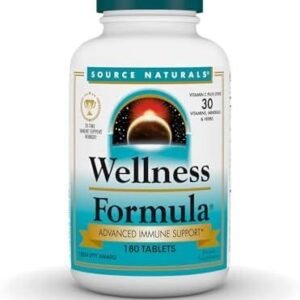As we navigate a world increasingly focused on health and wellness, the search for effective ways to bolster our immune systems has never been more critical. In the quest for fortitude against illness, one nutrient stands out not only for its longstanding presence but also for its remarkable influence on our bodily defenses: Vitamin D. Often referred to as the “sunshine vitamin,” this essential fat-soluble vitamin is much more than a mere supplement; it plays a pivotal role in regulating immune responses and maintaining overall health. With the promise of both prevention and resilience against infections, understanding the multifaceted power of Vitamin D is essential. In this article, we will delve into the biochemical intricacies of Vitamin D, explore its profound impact on immunity, and uncover how unlocking its potential can lead to a fortified defense against pathogens—paving the way for a healthier future.
Table of Contents
- The Science Behind Vitamin D: Understanding Its Role in Immune Function
- Sources of Vitamin D: Natural and Supplementary Ways to Boost Levels
- Optimizing Your Vitamin D Intake: Dietary Tips and Lifestyle Changes
- The Future of Immunity: Research Insights on Vitamin D and Disease Prevention
- Key Takeaways
The Science Behind Vitamin D: Understanding Its Role in Immune Function
Vitamin D acts as a powerful modulator of immune responses, assisting the body in its defense against pathogens. This fat-soluble vitamin, often referred to as the “sunshine vitamin,” plays a pivotal role in the activation of immune cells such as T cells and macrophages, which are critical in protecting the body from infections. Research shows that adequate levels of vitamin D can enhance the pathogen-fighting effects of monocytes and macrophages, which are essential components of the innate immune system. This interaction not only helps to fend off acute infections but also plays a role in regulating the immune system to prevent it from overreacting, which is crucial for preventing autoimmune diseases.
Moreover, a deficiency in this vital nutrient has been linked to an increased susceptibility to respiratory infections, including influenza and COVID-19. Studies suggest that higher vitamin D levels correlate with a lower risk of these infections, highlighting its importance in maintaining a robust immune response. To harness the benefits of vitamin D for immune health, consider the following sources and strategies:
- Sunlight Exposure: Aim for 15-30 minutes of sunlight exposure several times a week.
- Dietary Sources: Incorporate foods rich in vitamin D, such as salmon, fortified dairy products, and egg yolks.
- Supplements: Consult healthcare providers about vitamin D supplements, especially in regions with limited sunlight.
| Vitamin D Sources | Vitamin D Content (IU per serving) |
|---|---|
| Fatty Fish (e.g., salmon) | 570-700 |
| Fortified Milk | 100 |
| Egg Yolks | 37 |
| Orange Juice (fortified) | 100 |
Sources of Vitamin D: Natural and Supplementary Ways to Boost Levels
To maintain optimal levels of vitamin D, incorporating natural sources into your diet is essential. Fatty fish such as salmon, mackerel, and sardines are among the richest sources, providing not only vitamin D but also omega-3 fatty acids, which are beneficial for heart health. Additionally, egg yolks and fortified foods like milk, orange juice, and cereals can help boost your intake. For those seeking plant-based options, certain mushrooms exposed to UV light can serve as a valuable source of this vital nutrient, making it easier for everyone to sustain healthy levels.
In cases where dietary sources may not suffice, supplements can play a crucial role in enhancing your vitamin D status. Available in various forms, including vitamin D2 and the more potent vitamin D3, these supplements are effective ways to ensure you meet your body’s needs. Here’s a simple table that summarizes some common supplementary forms:
| Supplement Type | Source | Typical Dosage |
|---|---|---|
| Vitamin D2 | Yeast/fungi | 800-2000 IU/day |
| Vitamin D3 | Animal-based (lanolin or fish liver oil) | 1000-4000 IU/day |
| Cod Liver Oil | Fish liver | 1000 IU per teaspoon |
When considering supplementation, it’s prudent to consult with a healthcare professional to determine the right dosage tailored to your individual needs. This approach ensures you’re bolstering your immune defenses effectively without risking excessive intake, ultimately allowing you to harness the full potential of vitamin D.
Optimizing Your Vitamin D Intake: Dietary Tips and Lifestyle Changes
To effectively enhance your vitamin D levels, incorporating specific foods into your diet can make a significant difference. Consider adding the following sources to your meals:
- Fatty Fish: Salmon, mackerel, and sardines are rich in vitamin D and can support immune function.
- Egg Yolks: A simple addition to breakfast that packs a nutritional punch.
- Mushrooms: Especially those exposed to UV light, these can serve as a plant-based source.
- Fortified Foods: Look for cereals and dairy products fortified with vitamin D.
Beyond dietary changes, lifestyle adaptations play an essential role in optimizing vitamin D levels. Regular exposure to sunlight is crucial, as it stimulates the skin to produce this vitamin naturally. Aim for 15-30 minutes of sunlight several times a week, depending on your skin type and location. Additionally, incorporating supplements can be a viable option, particularly during winter months or for individuals with limited sun exposure. Consult with a healthcare professional to determine the right dosage for your needs. Making these adjustments can create a solid foundation for a robust immune system.
The Future of Immunity: Research Insights on Vitamin D and Disease Prevention
Recent research highlights the pivotal role of vitamin D in bolstering immune function and its potential to mitigate various diseases. A growing body of evidence suggests that adequate levels of vitamin D can enhance the body’s ability to fend off infections and chronic diseases. Notably, studies indicate that this vital nutrient may influence the immune response by:
- Regulating immune cell function: Vitamin D receptors are present on various immune cells, impacting their activity and signaling.
- Reducing inflammation: This vitamin has anti-inflammatory effects, potentially lowering the risk of autoimmune diseases.
- Enhancing pathogen defense: Vitamin D boosts the production of antimicrobial peptides, essential in combating pathogens.
Moreover, the relationship between vitamin D deficiency and increased susceptibility to diseases such as respiratory infections and certain cancers has garnered significant attention. Knowledge about optimal vitamin D levels for disease prevention continues to evolve, leading to recommendations for routine screening and supplementation, especially in populations at risk. The following table illustrates key findings from recent studies that emphasize the impact of vitamin D on health:
| Study | Findings | Implications |
|---|---|---|
| Study A | Vitamin D levels correlate with lower respiratory infection rates. | Potential prevention strategy for vulnerable populations. |
| Study B | Deficiency linked to higher incidences of autoimmune diseases. | Importance of maintaining adequate vitamin D levels. |
| Study C | Vitamin D supplementation reduces severity of viral infections. | Encouragement of supplementation, especially in winter months. |
Key Takeaways
as we navigate the intricate landscape of our immune systems, the importance of Vitamin D emerges as a beacon of hope. This powerful nutrient not only fortifies our defenses but also illuminates a path towards enhanced overall health. By understanding its vital role in immune function, we are empowered to make informed choices about our lifestyles and dietary habits.
As we embrace the sun-kissed essence of Vitamin D, let us remember that this isn’t just about supplementation; it’s about nurturing our bodies and minds in harmony with nature’s rhythms. As research continues to unveil the profound impacts of Vitamin D on our health, we stand on the brink of a revolution in immune care—one that invites us to unlock our potential for resilience.
So, as you step into your day, consider the ways you can harness the power of Vitamin D. Whether through sunlight, nutrition, or thoughtful supplementation, each choice is a step towards a fortified future. Together, let’s celebrate the intricate interplay of vitamins, our immune systems, and the vibrant health that awaits us. Here’s to embracing immunity, letting the light of knowledge guide us, and nurturing our well-being for years to come.




